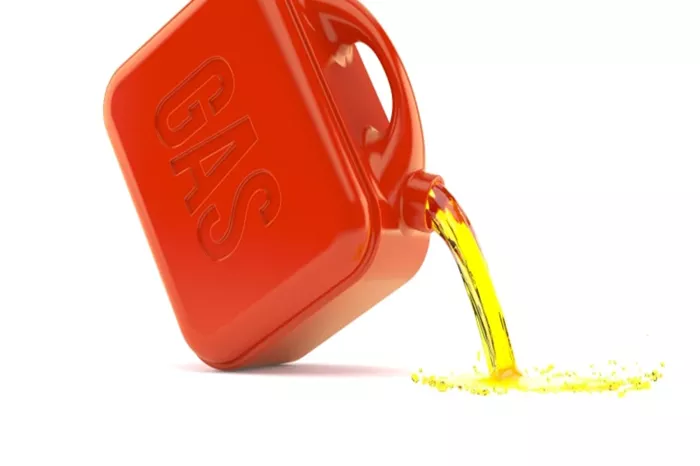Gasoline is the lifeblood of modern transportation, powering millions of vehicles worldwide. However, not all gasoline is created equal. Bad gasoline, contaminated or of low quality, can wreak havoc on engines, causing performance issues, reduced fuel efficiency, and even long-term damage. Understanding the causes, signs, and effects of bad gasoline is crucial for both vehicle owners and the industry as a whole.
What Causes Bad Gasoline?
Bad gasoline can result from various factors along the supply chain, from production to storage and distribution. Common causes include:
Water Contamination: Water can seep into gasoline storage tanks due to poor sealing or environmental factors. This water can promote the growth of microbes, leading to fuel degradation and corrosion.
Sediment and Impurities: Contaminants such as dirt, rust, and other particles can find their way into gasoline during production, transportation, or storage. These impurities can clog fuel filters and injectors, causing engine issues.
Poor Quality Additives: Gasoline often contains additives to enhance performance and prevent engine deposits. However, low-quality or improperly mixed additives can have the opposite effect, causing engine knocking, rough idling, and other problems.
Ethanol Content: Many modern gasolines contain ethanol, which can absorb water and cause phase separation in the fuel tank. This separation can lead to engine stalling and corrosion.
Storage Conditions: Gasoline deteriorates over time, especially when exposed to oxygen, heat, and light. Improper storage conditions can accelerate this process, resulting in degraded fuel quality.
Signs of Bad Gasoline
Detecting bad gasoline early is crucial for preventing engine damage and costly repairs. Common signs of contaminated or low-quality gasoline include:
Poor Engine Performance: Engine hesitation, rough idling, and reduced power output are common symptoms of bad gasoline. These issues may worsen under heavy loads or high-speed driving.
Stalling or Misfiring: Contaminants in gasoline can disrupt the combustion process, causing engine misfires or sudden stalling. This can be dangerous, especially at high speeds or in heavy traffic.
Fuel System Issues: Clogged fuel filters, injectors, and fuel lines are often caused by sediment and impurities in gasoline. These issues can lead to poor fuel economy, engine hesitation, and difficulty starting the vehicle.
Strange Odors: Gasoline should have a characteristic odor, but bad gasoline may emit foul or unusual smells, indicating contamination or degradation.
Increased Emissions: Contaminated gasoline can produce higher levels of harmful emissions, such as hydrocarbons and nitrogen oxides. This can lead to environmental pollution and may cause vehicles to fail emissions tests.
See also: What Does Bad Gasoline Smell Like?
Effects of Bad Gasoline on Engines
Using bad gasoline can have severe consequences for vehicle engines, leading to both short-term and long-term damage. Some of the primary effects include:
Engine Deposits: Impurities in gasoline can leave deposits on engine components, including fuel injectors, intake valves, and combustion chambers. These deposits can restrict airflow and fuel delivery, leading to reduced performance and efficiency.
Corrosion: Water and contaminants in gasoline can cause corrosion inside the fuel system, leading to rust formation and component degradation. Corroded fuel lines, tanks, and injectors can leak or fail prematurely, posing safety hazards and requiring costly repairs.
Engine Knocking: Low-quality gasoline with inadequate octane levels can cause engine knocking or pinging, indicating improper combustion timing. This can damage pistons, valves, and other engine components over time, reducing engine lifespan and performance.
Catalytic Converter Damage: Contaminated gasoline can foul the catalytic converter, reducing its efficiency in reducing harmful emissions. This can lead to increased exhaust emissions, decreased fuel efficiency, and potential catalytic converter failure.
Warranty Voidance: Some vehicle manufacturers specify minimum fuel quality requirements to maintain warranty coverage. Using bad gasoline that does not meet these requirements may void warranty coverage for engine-related issues, leading to out-of-pocket expenses for repairs.
Preventing and Addressing Bad Gasoline Issues
Preventing bad gasoline issues requires a combination of proactive measures and vigilant monitoring. Some key strategies include:
Choose Reputable Stations: Purchase gasoline from reputable stations with a track record of quality control and adherence to industry standards. Avoid stations with poorly maintained pumps or questionable practices.
Regular Maintenance: Follow a regular maintenance schedule for your vehicle, including fuel system inspections and filter replacements. This can help identify and address issues before they escalate.
Fuel Additives: Consider using fuel additives designed to clean and protect the fuel system. These additives can help mitigate the effects of bad gasoline and improve engine performance and longevity.
Proper Storage: If storing gasoline for extended periods, use approved containers and store them in a cool, dry place away from direct sunlight. Use fuel stabilizers to prevent degradation and water absorption.
Monitor Engine Performance: Pay attention to changes in engine performance, fuel economy, and emissions. If you suspect bad gasoline, consider draining the fuel tank and refilling with fresh gasoline from a reputable source.
Conclusion
Bad gasoline can have far-reaching consequences for vehicle owners and the automotive industry as a whole. By understanding the causes, signs, and effects of bad gasoline, consumers can make informed decisions to protect their vehicles and avoid costly repairs. Vigilance, proactive maintenance, and choosing reputable fuel sources are essential steps in mitigating the risks associated with bad gasoline.
Related topics:

